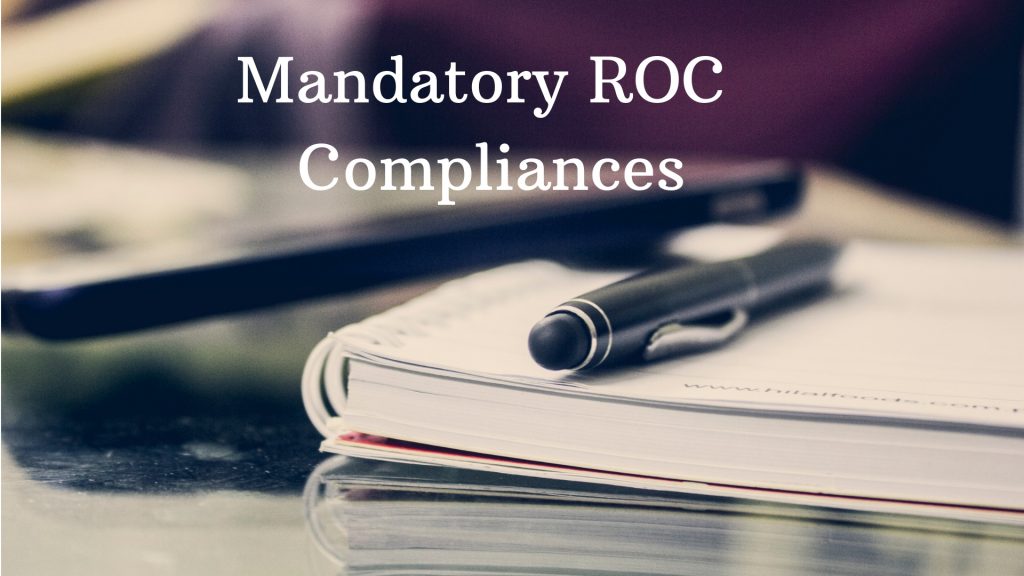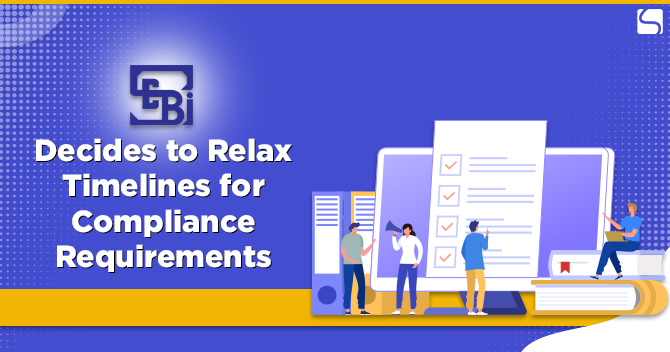Mandatory ROC compliances that every company must follow

Khushboo Priya | Updated: Mar 30, 2019 | Category: Compliance
It is a well-known fact that Private Limited Company is a highly preferred mode of starting any kind of business. There are a few mandatory ROC compliances that companies are required to follow properly once the company is incorporated. Private limited companies actually fall under the Companies Act 2013. Hence, it needs to follow all the compliances of the Act.
In this blog, we have enlisted mandatory ROC compliances that every company is supposed to follow and file returns before the due date. But let us first understand why following compliances are so much recommended.
Table of Contents
What are the needs for following compliances?
Managing the everyday operations of your company along with successfully complying all corporate laws is somewhat challenging for the business entrepreneurs. Thus, it is important to take the assistance of professionals and also understand mandatory ROC compliances to make sure timely satisfaction of compliances. It helps you to avoid the penalties or interest amounts.
What are ROC compliances?
ROC is expanded into the Registrar of Companies. It is the office under the Ministry of Corporate Affairs (MCA) in India. This office deals with the administration of Companies Act, 2013. When it comes to ROC, it is appointed under section 609 of Companies Act. It covers different Union and States Territories which are vested with a key role of registering businesses. It also includes the LLPs floating in all respective Union Territories and states.
This procedure ensures that the LLPs and companies comply with basic requirements under the companies act. The ROC office works are the registry records, associated with businesses registered successfully with them. They are obtainable for examination by public members on payment of prescribed fee. It is vital to know that there are roughly about 22 ROCs operating from the offices in leading Indian states.
What are the Mandatory ROC Compliances for companies?
After the incorporation of your company, mandatory ROC compliances under the Companies Act, 2013 are given below:
1. Meeting of the board of the directors
When it comes to the Board of Directors, they are the powerful and important bodies that play a major role in almost every kind of company. Section 173 of the Companies Act educates you about the Board of Directors’ meeting.
- In every company, the first meeting needs to be performed within 30 days of your business incorporation.
- It is important to conduct at least four board meetings every year.
- You can ensure that the time duration between your two consequent meetings never exceeds 120 days.
Find out the latest update on annual compliances of Private Limited Company.
2. Issue of your share certificates
According to the Companies Act Section 53, you can make sure that the issue of share certificates to be performed within 60 days from the allotment date. If your shareholders surrender the allotted letters, you should send the share certificate to shareholders through registered post.
3. Auditor appointment
Companies Act Section 139 governs that you should appoint the foremost auditor of your company with 1 month from the registration date. The chosen auditor can hold this post until the completion of the 1st annual meeting.
If the board of your company fails to recruit auditor within 1 month, you can simply call for an outstanding general meeting within ninety days and recruit your auditor. The selected auditor will hold this posting until the completion of the yearly general meeting.
4. Minutes of proceeding of both general and board meetings
Companies Act Section 118 and also Rule 25 of the Companies Rules 2014 manage with all the aspects of these minutes of proceedings. These minutes should include a precise summary of your proceedings. Once the general meeting/board meeting is completed, you should prepare, keep and sign minutes within 1 month.
- The minutes of the board meeting is actually signed by a chairman of the meeting or a chairman of an upcoming meeting.
- The minutes of the general meeting is signed by a chairman of meeting within 1 month or signed by the director duly approved by a board.
5. Filing of the disclosure of interest by Directors
Companies Act’s Section 184, 2013 actually deals with this disclose of interest by the director.
- It offers that every director at the 1st meeting of a Board in that the director participates as a director.
- Also he participles at the 1st meeting of Board in each financial year or some changes in these disclosures previously made
- Then he participates at the 1st board meeting conducted after every change
- Finally, he discloses his every concern of interest in the business or group of people that shall consist of shareholding
- In any instance, if the director makes any contract with the business and never disclose his true interest, you can consider it as the breach of faith among directors
- Rule 9 of Companies Rules 2014 offers that disclosure is made in the form of MBP-1 and also filed with ROC in the form of MGT-14.
Unfortunately, if the director does not disclose his overall disclose, then he is responsible with custody that may expand to 12 months, or with the fine amount of roughly about Rs. 50,000 that may expand to about Rs. 1,00,000.
6. Authorization and signing of all financial statements
Section 134 of the Companies Act, 2013 and Rule 9 and 8 of the Companies Rules, 2014 actually deals with both the board report and financial report.
- You should file your financial statements within 1 month of your yearly annual general meeting with the ROC compliance in AOC-4.
- It includes a Balance sheet for Filling of the Financial Statement, CRS (Consolidated Financial Statement AOC-4) for all companies that have Joint Ventures, Subsidiary Company, and Associate Company.
- You can consider Loss & Profit Account for Filing of your Loss and Profit Account.
- According to the company’s financial statement, the board prepare a report and also successfully submit it in general meeting
- The financial statement of a company is approved by Directors board and is signed by the chairperson of a company
When it comes to the chairperson, he is approved by Board of by 2 directors out of that one is managing director of the company as well as Chief Executive Officer if an individual is a director in an organization.
7. Report by Directors Board
Companies Act Section 134, 2014 offers that all reports of the Directors Board of each Company are linked with company details like corporate social responsibility and finances account with a balance sheet. It is produced successfully in each yearly general meeting.
8. Filing of yearly returns
As per Companies Act Section 92, every business should essentially prepare the yearly return with ROC within 2 months of yearly general meeting in the MGT-7. It is signed by one director as well as is needed to be authorized by a Secretary of the company. It is one of the mandatory ROC compliances that every company needs to follow by regardless of its type.
Essential documents for annual ROC compliance
1. Form MGT-7- Annual Return
It includes registered business details of a company, information of its every holding, key business activities, and associate companies
- Indebtedness
- Share, Debentures and other securities ‘
- Promoters, major managerial personnel, and directors along with major changes
- Members meeting
- Remuneration of Directors and leading managerial personnel
2. Form AOC-4 – All Financial Statements and Other Documents
Companies file their financial statements as well as relevant attachments by using the Form AOC-4 every year.
Conclusion
Unfortunately, if you fail to comply with key rules mentioned under the Companies Act, 2013, every individual who is accountable for this fault or mistake will be punished by a penalty. If you want to avoid the inconveniences, you need to follow mandatory ROC compliances which are shared in this article.
For further details regarding the compliances of the company, contact the highly dedicated and efficient team of Swarit Advisors.
Also, Read: Annual General Meeting (AGM): An Obligatory Compliance for Companies.














